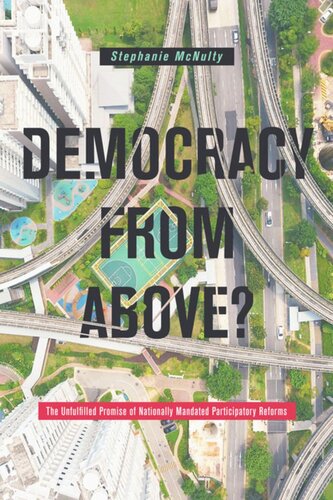

Most ebook files are in PDF format, so you can easily read them using various software such as Foxit Reader or directly on the Google Chrome browser.
Some ebook files are released by publishers in other formats such as .awz, .mobi, .epub, .fb2, etc. You may need to install specific software to read these formats on mobile/PC, such as Calibre.
Please read the tutorial at this link: https://ebookbell.com/faq
We offer FREE conversion to the popular formats you request; however, this may take some time. Therefore, right after payment, please email us, and we will try to provide the service as quickly as possible.
For some exceptional file formats or broken links (if any), please refrain from opening any disputes. Instead, email us first, and we will try to assist within a maximum of 6 hours.
EbookBell Team

0.0
0 reviewsPeople are increasingly unhappy with their governments in democracies around the world. In countries as diverse as India, Ecuador, and Uganda, governments are responding to frustrations by mandating greater citizen participation at the local and state level. Officials embrace participatory reforms, believing that citizen councils and committees lead to improved accountability and more informed communities. Yet there's been little research on the efficacy of these efforts to improve democracy, despite an explosion in their popularity since the mid-1980s. Democracy from Above? tests the hypothesis that top-down reforms strengthen democracies and evaluates the conditions that affect their success.
Stephanie L. McNulty addresses the global context of participatory reforms in developing nations. She observes and interprets what happens after greater citizen involvement is mandated in seventeen countries, with close case studies of Guatemala, Bolivia, and Peru. The first cross-national comparison on this issue, Democracy from Above? explores whether the reforms effectively redress the persistent problems of discrimination, elite capture, clientelism, and corruption in the countries that adopt them. As officials and reformers around the world and at every level of government look to strengthen citizen involvement and confidence in the political process, McNulty provides a clear understanding of the possibilities and limitations of nationally mandated participatory reforms.